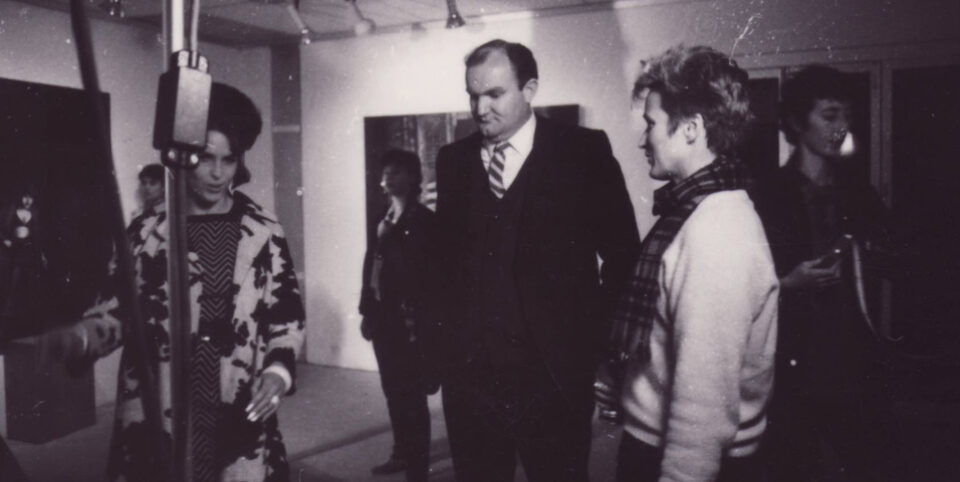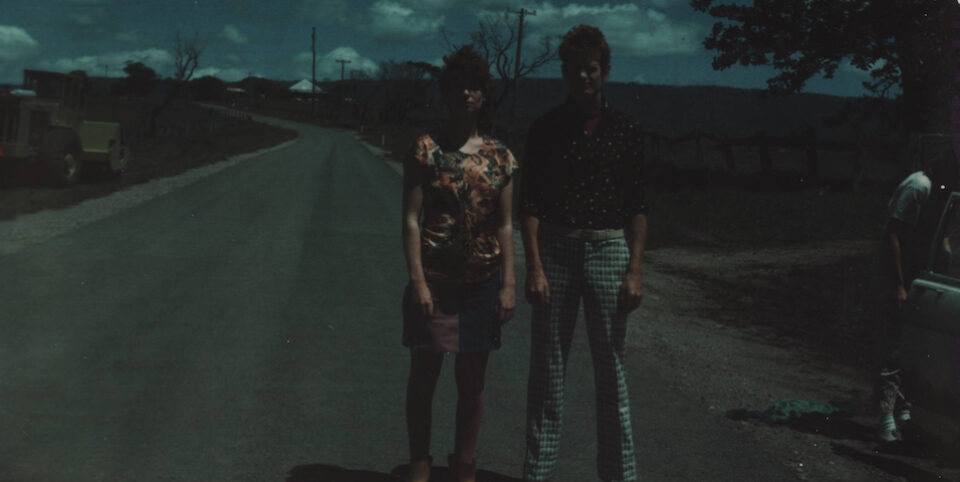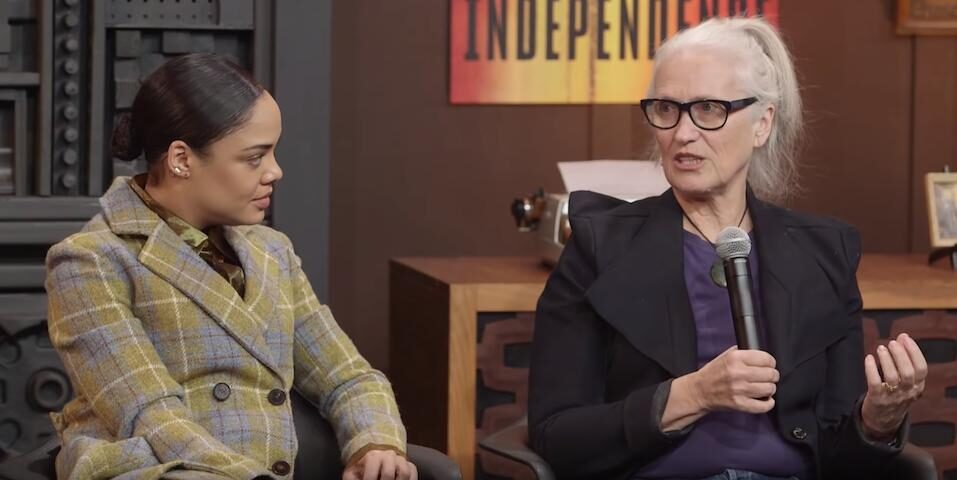Alumna Jane Campion (Diploma Directing, 1983) has just wrapped up serving as one of the “20 celebrated and revered expert voices across film, art, culture, and science” making up the Jury of this year’s Sundance Film Festival, where she headed the World Cinema Dramatic Jury. In a Cinema Café talk during the festival, moderated by critic Alissa Wilkinson and joined by actress Tessa Thompson (Westworld, Thor: Ragnarok), Campion reflected on her life and career, including what compelled her to work in film, and her time at AFTRS.
“It had a lot to do with just not feeling I had a place in the world as a young person. Then I started to see films. I remember seeing Apocalypse Now in the ’70s, and starting to feel that this is where the exciting conversation is. This is where people talk and ask questions, like ‘Why are we here?’ ‘What’s the point of our lives?’”
But for Campion, this didn’t immediately translate into a prospective career. “I’d never ever in my life think that I could be a director. It seemed like these are for geniuses. People making films have so much to think about and to gather.”
Campion instead enrolled in London’s Chelsea Art School, before completing her studies at the Sydney College of the Arts in Sydney. Though a painting major, she found herself drawn to creating short drama plays, submitting them as coursework instead. “I just fell in love with projects, with whatever it was that I was involved in the storytelling of, and I just wanted to do that as well as I could.”

In 1981, that love set Campion to work on making Super 8 films, and enrol in the AFTRS Diploma in Directing course. “There was a really interesting group there when I was there, people like Alex Proyas (I, Robot; Dark City), Laurie McInnes (Broken Highway, Dogwatch), P.J. Hogan (Muriel’s Wedding, My Best Friend’s Wedding) and Jocelyn Moorhouse (The Dressmaker). Definitely there were a lot of people with an art school touch, and we bonded a lot. We used to do the night shift at school and taught each other.
“I realised these short films are your calling card and I got every short film out of the library that had won an award, watched them and tried to work out what was distinctive about them. Every one of those films had something that elevated them, and I could see you were in a world of no mistakes. You had had to make them good. You had to make it solid.”
Campion learned a hard lesson on her first AFTRS short film, Peel. “I got really, really sick. I was in hospital because I had no idea how manage myself or my health. I just drove myself into the ground. The next year I had to do almost nothing just to get well again. I learned a really big lesson in looking after yourself.” Filmed in 1982, Peel went on to win the Short Film Palme d’Or at the 1986 Cannes Film Festival.
On what drives her to work on certain projects, Campion revealed “It’s always passion-inspired. I’m always really intrigued to see how things will work out.” “I actually don’t think about the end, when audiences are going to see it or what reviewers are going to say. That is really a helpful mental lacking in myself. I forget to be afraid when I’m excited and passionate.

Having frequently moved between working in cinema and television (key TV works include Two Friends, An Angel at My Table, and Top of the Lake), Campion weighed in on the ever-raging TV-versus-cinema debate. “[I loved] the amount of collaboration I did on Top of the Lake with different people. That was so fun. The BBC were our first promoters and supporters and we were really allowed to do whatever we wanted. They just said ‘Don’t be conservative.’ That’s pretty amazing. In cinema you get the opposite. To get people out to go and see a movie, they really need to be reassured that it’s going to be entertaining for them, or unique, or really special. Now with cinema you have to be really thoughtful about what sort of project you’re doing, and whether it has that kind of attraction.”
Answering questions from the audience about being on the Jury, Campion, also a voting member of the Academy of Motion Picture Arts and Sciences, mused “I basically can’t be more than I am. I just respond as myself, as a moviegoer, to the films that are there.” “You want to give your full attention to it, and see the good things in it. In the Oscars, it’s the same. I vote for what I love.”
Asked whether they would do any other job on a film set other than their own, Thompson responded “I’d be a Cinematographer”, Jane adding “I’d be a Cinematographer too. Or Continuity, because they see everything.”
The 2019 Sundance Film Festival ended earlier this week, with Campion presenting The World Cinema Grand Jury Prize: Dramatic to Joanna Hogg for her film The Souvenir. Campion’s Palme d’Or winning AFTRS short Peel is available to view on ABC iView.
